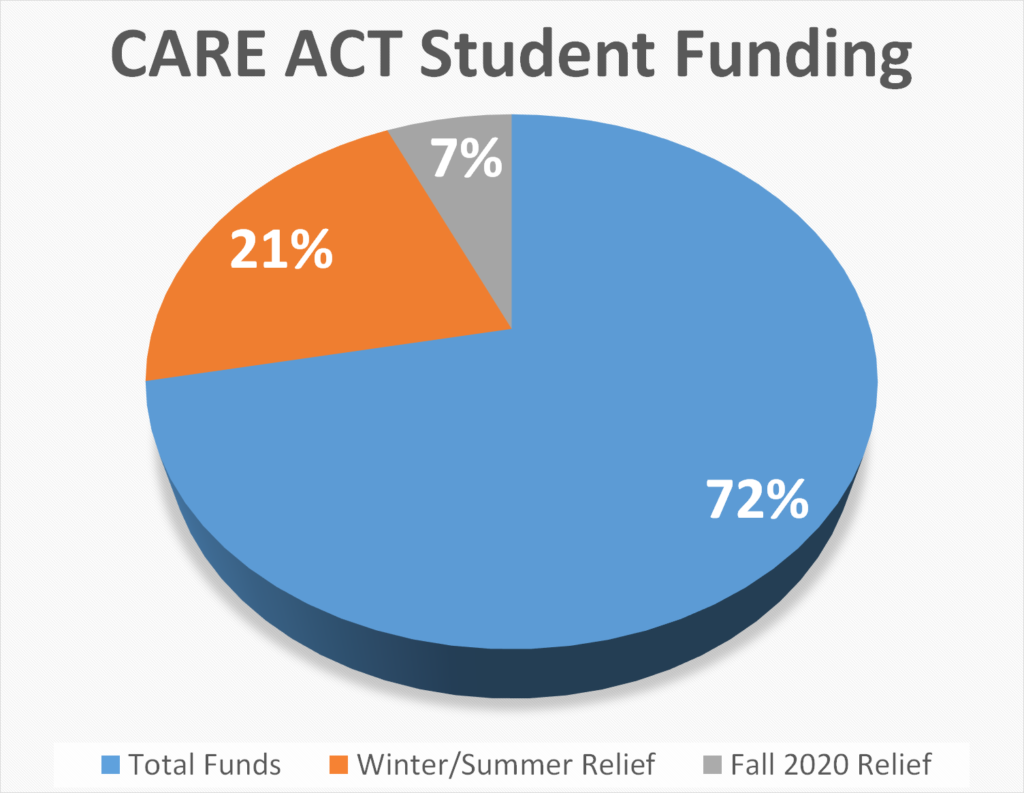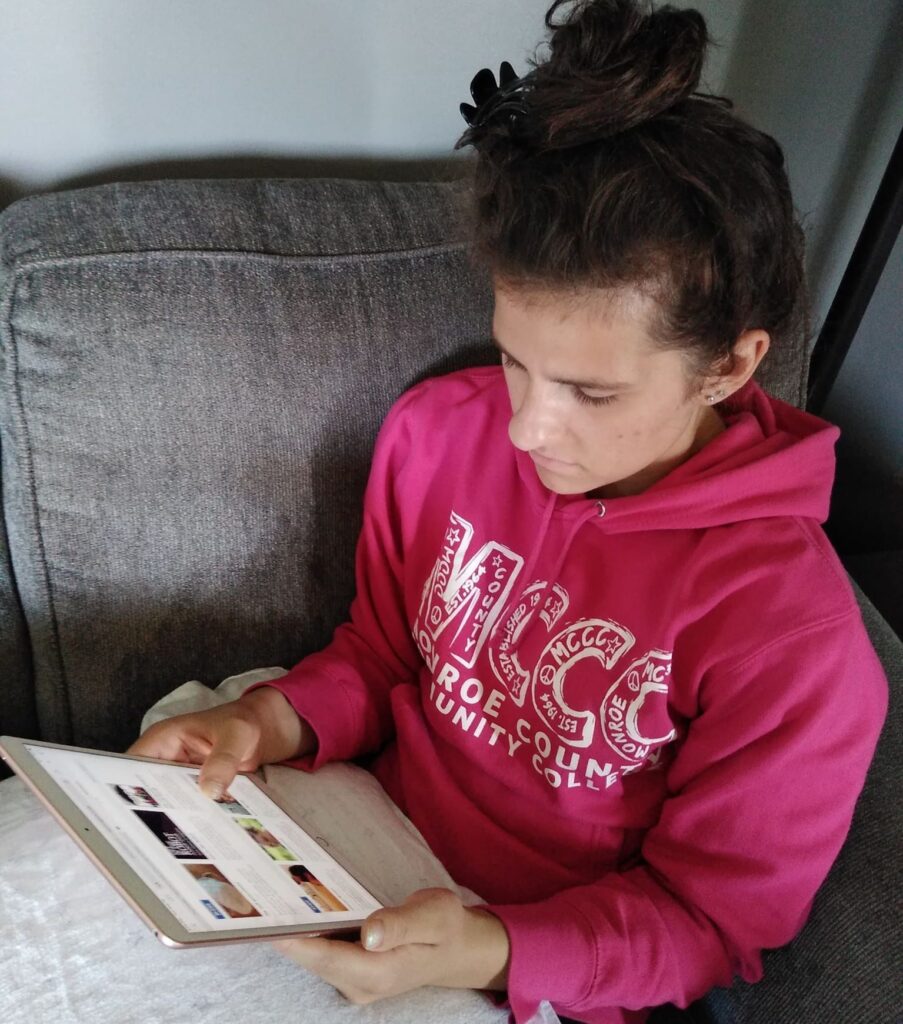
The college still has over $395,000 to give away to students.
MCCC was granted $1.3 million for COVID-19 relief on April 9.
First passed by Congress and signed in to law by the president on March 27, The Coronavirus Aid, Relief and Economic Security Act gives $2.2 trillion to Americans negatively affected by the COVID-19 pandemic.
The Office of Postsecondary Education was given $14 billion of that for the Higher Education Emergency Relief Fund, giving aid to both college students and campuses.
The Department of Education made it mandatory that at least half of the money colleges allocate from the CARES Act go into student relief funding, while the other could be used for the campus directly.
Originally given $650,258 for student relief, the college’s Financial Aid Office dispersed $193,700 to 207 students from the Summer and Winter 2020 Semesters.
For the Fall 2020 Semester, $60,750 has been given to 58 students so far.
That leaves $395,808 still available to the remaining registered students
Valerie Culler, director of Financial Aid, said plans were first made to disperse the funds for students as soon as the money was granted to the college.
The earliest the Financial Aid office was able to open the application for students to receive the funding was the last week of the Winter 2020 semester, Culler said.
“There’s a very big difference in terms of the financial aid students are used to receiving,” Culler said. “The big difference with the CARES act is these are emergency grants that the U.S. Department of Education said must go directly in the hands of students.”
What this means is that the CARES Act money is not allowed to be used by the office to pay for students’ tuition, fees, book purchases, etc.
Students must meet Title IV Federal Student Aid Eligibility criteria to qualify in receiving CARES Act funds.
To meet these criteria, a student must have a FASFA on file for the current academic year, be currently enrolled at the college, meet the academic standards to receive federal student financial aid, and complete further paperwork the Department of Education might require to qualify for federal financial aid.
Culler said applications are being looked at every two weeks to award these funds.
Refund checks can now only be issued to currently enrolled students.
Students who applied for reimbursement for the Winter and Summer Semesters have already been sent out refund checks.
“If a student is registered for fall and they were enrolled for summer classes, I am able to still go back and get the money, retroactively for the summer term,” Culler said regarding applications for past semester reimbursement.
Whereas, students who try applying for funds from the Summer or Winter Semester and are no longer enrolled are not eligible, not meeting the Title IV criteria of being a current student.
MCCC developed a task force with representatives from various departments around the campus to formulate a list of eligible expenses that students could request CARES Act funding for.
“The task force worked together to come up with the dollar amount we felt were reasonable for each categorized expense,” Culler said.
For instance, a standard amount of $750 is considered what a student would need for a laptop.
Students who may need more specific needs that extend further than these estimates are able to contact Culler who may adjust funds accordingly.
Eligible students able to receive funding for the fall are being emailed that they will be awarded, but it will not be released until the Fall Semester starts.

Such is the case with Colette Tibai, a returning student who will be taking her fist full set of classes on campus this fall.
“Being able to apply so easily for the CARES Act and now having something I can rely on to get me through the semester is a huge relief,” Tibai said.“I would not have been to afford my iPad otherwise given the unexpected expenses life already throws in frequently.”
Tibai said her previous tool to accessing work for classes was somewhat incompatible for video chat programs.
After getting email confirmation of the funds she will be receiving once the semester starts, she was able to recently purchase a tablet to aid in her online courses this fall.
The U.S. Department of Education gave a directive that the money should be dispersed to students as quickly as they can, though college’s still have till next September to do so.
“Right now our intention is that we fully extend it by fall,” Culler said.
Even if funds run out, there is still COVID-19 relief aid students can receive.
Once the CARES Act money is exhausted, the MCCC Foundation and various donors have contributed to a source of emergency grants for students suffering hardship over COVID-19 that will be distributed through the Financial Aid Office.
“Our goal is to make sure everyone has the technology that they need to be successful in their courses,” Culler said.
As of now, the campus side of CARES Act funding is still in the works.
A.J. Fischer, the college’s director of Financial Services, was contacted over email about the college’s spending plans of the newly acquired relief aid.
After the Department of Education first told MCCC of the $1.3 million distribution, a college committee began reviewing and discussing procedures for administering the funds.
“Both the student and institutional portion of the funds come with restrictions from the United States Department of Education,” Fischer said.“Our committee ensures that we follow those rules and regulations.”
Fischer said the goal for CARES Act spending is to provide the following:
A safe, clean environment for students and employees
Remote classes once taught in person
Enhanced student and employee support through technology.
MCCC has already accumulated various expenses in these endeavors.
“CARES Act funds are reimbursed as they are spent,” Fischer said.
The college has not received reimbursement for institutional expenses yet, but Fischer said their first reimbursement is likely to be received by mid to late August.
These funds the college is given will have to be spend by or before May 2021.
Fischer said students will see the benefits of this funding both on campus and in the expanded online format of classes.
“They will notice the protective shields, face-masks, hand sanitizers, signs, etc. on campus,” Fischer said. “They will also benefit from upgraded software to provide the necessary remote instruction.”
Online instruction and upgraded student services, he said, would not be able to be supported without these funds.
“The CARES Act funding is critical for Monroe County Community College, its students, and employees” Fischer said.
“Many individuals, businesses and colleges have been drastically effected by COVID-19,” Fischer said. “These funds help alleviate some of the burden we have and will experience.”
The college will continue receiving funds for campus relief in the following months and will have to have them spent by May 2021.

